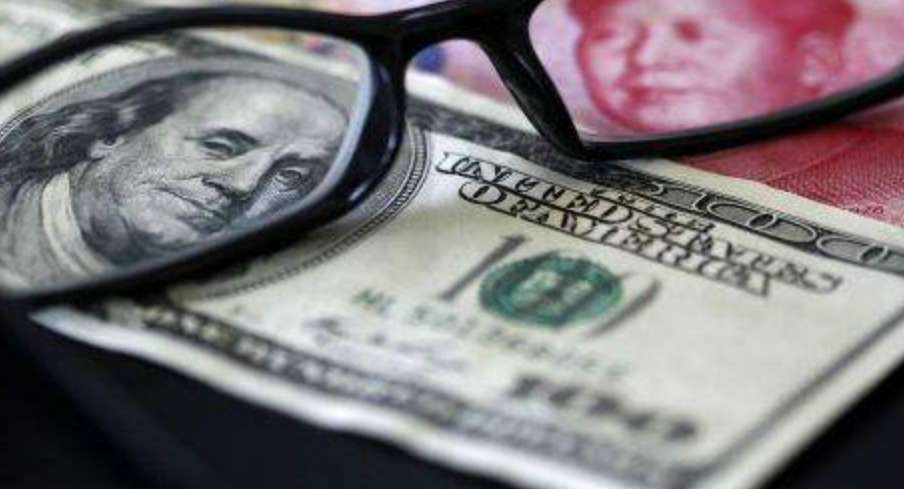US Stock Market Seems Overvalued
Advertisements
In the ever-changing landscape of the American economy, Jamie Dimon, the Chief Executive Officer of JPMorgan Chase, casts a shadow of caution amidst the prevailing optimism on Wall Street. His insights reveal a nuanced understanding of current market dynamics, warning of a potential storm brewing beneath the surface of seemingly robust performance indicators.
During an interview at the World Economic Forum in Davos, Dimon articulated concerns about overvalued asset prices, referencing a range of economic factors that contribute to his apprehension. He remarked that asset prices currently lie in the top 10 to 15 percent of historical valuations, raising alarms for potential market corrections. While the stock market has seen an impressive bull run stretching over several years, underlying vulnerabilities, particularly within areas like sovereign debt, cannot be overlooked.
JPMorgan Chase has been a significant player in the financial sector, characterized by its substantial assets and market capitalization. Under Dimon's stewardship, the company has navigated many economic cycles, yet his cautious outlook suggests that even seasoned executives can feel the tremors of instability. Dimon’s past analogy of the economy facing an impending “hurricane,” illustrates his belief that while the winds of change may not be here yet, the conditions for a tempest are certainly present.
In his dialogue with CNBC’s Andrew Ross Sorkin, Dimon reflected on his heightened sense of caution regarding critical issues such as global deficit spending, persistent inflation, and geopolitical tensions. He emphasized that growth remains the “only real solution” to mitigating deficits, a perspective that underscores the intrinsic link between economic expansion and fiscal responsibility.

Dimon's observations don't exist in isolation; they reflect a broader narrative within financial markets, where valuations often outpace underlying economic fundamentals. Stakeholders in various sectors, from retail to manufacturing, are wrestling with inflationary pressures that threaten to dampen consumer sentiment and consumer spending. For instance, the retail segment has shown signs of strain, with inventories piling up as the gap between supply and demand widens due to inflation. Such a scenario poses significant risks not just for individual companies but for the overall health of the economy.
Moreover, in contemplating the global economic order, Dimon suggests that the repercussions of current challenges may define the landscape of the next century. Historical precedents signal that significant economic shifts often arise from a confluence of factors, not least of which are market psychology and political stability. The specter of geopolitical conflicts, including trade wars and military tensions, adds another layer of complexity to the considerations of investors.
In light of these multifaceted challenges, Dimon has also addressed governmental inefficiencies, underscoring the need for greater accountability and efficacy within public institutions. Echoing sentiments from influential figures like Elon Musk—who has recently taken on the mantle of leading a “government efficiency department”—Dimon stresses the importance of results-oriented governance. His remarks resonate with a growing chorus of voices urging for reform to streamline government operations and foster a business-friendly environment.
The recent reshuffling of executive leadership at JPMorgan serves to further illuminate the shifting dynamics within the firm, especially as Dimon nears a potential transition in leadership after nearly two decades at the helm. With Daniel Pinto, the current President and Chief Operating Officer, set to retire by the end of next year, the focus must turn to candidates like Marianne Lake, who heads the consumer division, and co-heads Troy Rohrbaugh and Doug Petno, who have assumed pivotal roles within the organization.
Dimon's acknowledgment of the leadership vacuum left by Pinto’s departure speaks to the inherent uncertainty that characterizes transitions in major corporations. Colleagues stepping into roles of increasing responsibility will need to adopt strategic continuity while also injecting fresh perspectives into JPMorgan’s operational framework.
Simultaneously, Pinto’s insights into private credit markets highlight a burgeoning landscape of alternative financing that has emerged in the wake of the 2008 financial crisis. As traditional lending institutions pulled back in the aftermath, the rise of direct lending has found favor among small businesses seeking to bridge funding gaps. Pinto alludes to the necessity of scrutinizing how these funds perform, particularly in economic downturns, posing an intriguing question: will reliance on private credit foster resilience, or could it lead to unforeseen vulnerabilities?
Amidst these discussions about credit and leadership, another significant voice, Filippo Gori, co-head of JPMorgan’s global banking operations, lends weight to Dimon's cautious optimism regarding the economy. His observations on market sentiment reflect a mood of euphoria, asserting that the market has reawakened with an invigorated sense of purpose following governmental shifts perceived as more business-friendly.
As we ponder the implications of Dimon’s insights, it is clear that the interplay between optimism and caution characterizes the current economic discourse. Investors and stakeholders are left grappling with the fine line that separates a flourishing market from a precarious one—an ever-relevant reminder of the dynamic and sometimes unpredictable nature of the financial landscape. The global economy's trajectory will undoubtedly be shaped not only by policy decisions and market forces but also by the collective psychological disposition of those operating within it.
Post Comment